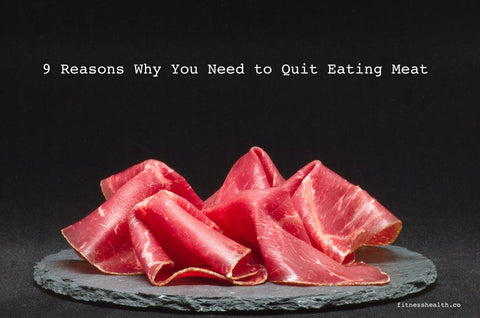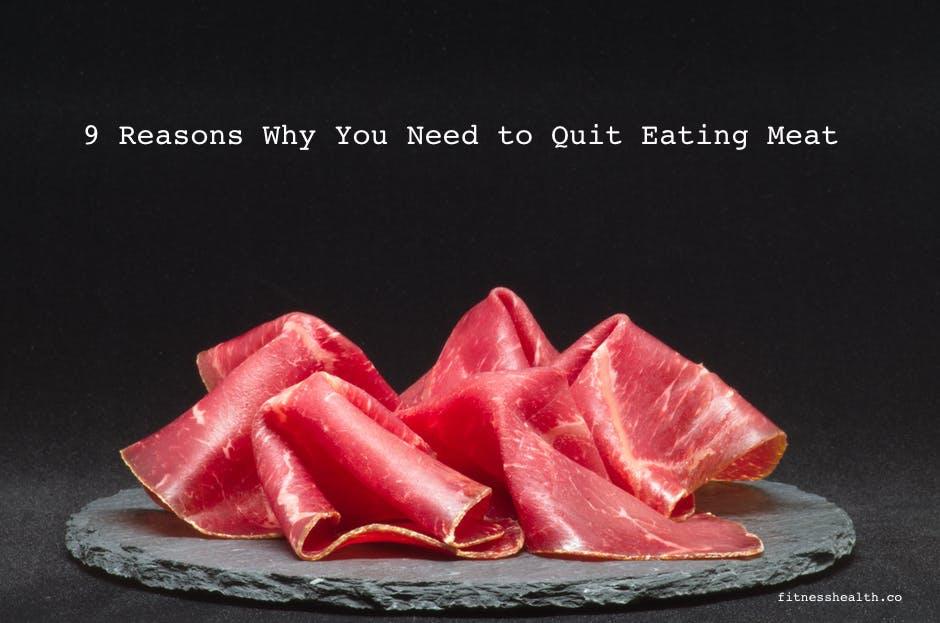
While there are people who enjoy eating meat a lot of them tend to overdo it with their consumption of meat and that leads to a lot of serious health problems down the road.
There’s a reason vegetarianism is experiencing a boost. For a lot of people, eating meat isn’t a good dietary choice due to the health risks it carries as well as how meat is produced for human consumption.
According to reports, global meat consumption has risen from under 50 million tons to over 200 million tons in the last 50 years (an incredibly short period of time). Thus, although a lot of problems exist, these can be categorized into 3 broad categories (i.e.) health reasons, environmental reasons and animal rights reasons.
These are further discussed below.
- Lowering the Risk of Cancer and Heart Disease
According to reports published by the Physicians Committee for Responsible Medicine, vegetarians are less likely to get cancer by 25-50%. Researchers, Dr. Dean Ornish and Dr. Coldwell Esselslyn have introduced a vegetarian diet plan which is one of the few reliable ones out there.
Following such a diet can reduce cholesterol levels in the body as well as lower the risk of osteoporosis as the amount of protein leading to the loss of bone is minimized by increasing vegetable intake.
- Lowering the Risk of Kidney and Gallstones
To neutralize the effect of taking in too much protein through the consumption of meat our body leaches out calcium, otherwise, the acids produced by a heavy intake of protein leads to the development of gallstones and kidney problems.
- Gaining Weight
A very meat-protein heavy diet increases the rates of weight gain in people who aren’t active enough. An increase in weight makes the body vulnerable to numerous health ailments.
- Factory Farmed Animals Carry Disease and Toxins
FDA (food and drug administration) reports claim that poultry is the top source leading to foodborne illnesses. For example, almost up to 60% of chickens being sold at the supermarkets are subject to infection from live salmonella bacteria.
For the US, it was approximated that 30% of all pork products are subject to contamination from toxoplasmosis. These constraints to health are present despite the use of pesticides and antibiotics and have led to contagious diseases like the "Mad Cow Disease" in livestock. Also, meat has an accumulation of chemicals up to 14 times more as compared to plants.
- Inefficient use of Agriculture and Water
In the US, 70% of the grain production is used for feeding farm animals. These sources of grain utilized on animals to feed an average person annually can be used to feed 7 people for the same duration. Moreover, stats show that 2640 gallons of water is used for keeping such animals alive.
- Destruction of Natural Habitat
This point talks about the space allotted to farm animals used as a source of food. They take up more than twice the space that can be used for growing edible plants. Trees are cut and wildlife is shot dead to make space on land for more farms or for expanding existing ones. Thus, natural habitats are destroyed.
- Farms are Being Overcrowded
Animals are kept in confined and ammonia-filled conditions. This also increases the chance of disease.
- Animals are Being Tortured on Farms
Chickens have their beaks seared off with a hot knife, and some are even hung upside down. These cruelties are faced by animals because they have to be "prepared" by man for man's consumption.
- Animals on Farms are Treated Like Machines
From being pumped with drugs to being forced to grow and produce as fast as possible, these animals endure days (24 hours and 7 days a week) of artificial lighting while being crammed into tiny cages to make harvesting easier.









